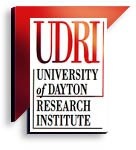Improve, Enhance Fuel -- and Make it Cheaper
A five-year, $31.5 million ceiling contract from
Wright-Patterson Air Force Base to the University of Dayton
Research Institute will be used to improve conventional fuels and
develop advanced fuels, additives and fuel/combustion technologies
for advanced aircraft and aerospace systems. The contract is the
largest to be awarded to UDRI and positions the group as one of the
country's leading research facilities to provide technology for
higher engine efficiencies, while significantly lowering fuel
costs.
 "We are excited about the promise and the
possibilities of discovery this contract will afford the
University's Fuels and Combustion Center. It has always been
our shared vision that when the world's scientific community and
aerospace industries think about the need for advances in aerospace
fuels and combustion, they will immediately think of Dayton," said
Colonel Al Janiszewski, director of the Air Force Research
Laboratory's propulsion directorate at WPAFB. "With the
recent establishment of the von Ohain Fuels and Combustion Center
at UD along with this sizeable contract, we are advancing on that
goal.
"We are excited about the promise and the
possibilities of discovery this contract will afford the
University's Fuels and Combustion Center. It has always been
our shared vision that when the world's scientific community and
aerospace industries think about the need for advances in aerospace
fuels and combustion, they will immediately think of Dayton," said
Colonel Al Janiszewski, director of the Air Force Research
Laboratory's propulsion directorate at WPAFB. "With the
recent establishment of the von Ohain Fuels and Combustion Center
at UD along with this sizeable contract, we are advancing on that
goal.
"This program will directly support the Department of Defense,"
he said. "We awarded the contract to UDRI because they've earned a
reputation in this field, and the partnership with them will allow
us to directly transition the results to the companies developing
'next generation' advanced aerospace systems."
What may have helped poise UDRI for this work is the
University's new von Ohain Fuels and Combustion Center in the
School of Engineering. The center is one of the largest academic
institutions working with the United States Air Force in the area
of fuels and combustion science. Named for former UDRI researcher
Hans von Ohain, co-inventor of the jet engine in 1939 in Germany,
the center is focused on developing versatile dual-use fuel and
combustion technologies for military and commercial
applications.
According to Dilip Ballal, director of the von Ohain center,
most aircraft rely on fuel as a source of thermal management for
subsystems as well as propelling the aircraft forward. "While
existing fuel technologies have been sufficient to support current
aerospace systems, they will be critically
limited in new and future systems. Therefore, significant
advancements are necessary and that's what we aim to
accomplish."
In addition to better fuel, researchers are developing cleaner
fuel. Increasingly, environmental issues are being linked to
aviation in the search for ultra clean low sulfur fuels, reduced
particulate matter emissions and reduced CO2 emissions.
 "Anytime you can reduce pollution in air
transportation, you improve the environment," said Gordon Sargent,
vice president for graduate studies and research. "The
development of a new combustion process will increase fuel
efficiency, so this country won't need to be as dependent on
foreign oil."
"Anytime you can reduce pollution in air
transportation, you improve the environment," said Gordon Sargent,
vice president for graduate studies and research. "The
development of a new combustion process will increase fuel
efficiency, so this country won't need to be as dependent on
foreign oil."
Ballal said the partnership with Wright-Patterson Air Force Base
helps complete a circle. "The work we've been able to accomplish in
fuel and combustion technology thus far helped us win the Air Force
contract in the first place," said Ballal. "And the contract opens
many doors for the University by supporting graduate students and
faculty in the School of Engineering to complete more
research."
Graduate student support will be upwards of $350,000 during this
time. As of now, $2,220,760 of the funds have been obligated,
and further funds will be awarded as individual orders are
issued. The work will be completed in April 2008.
"This contract will go a long way to foster the learning of
promising young scientists in the hands-on atmosphere championed by
UD," Janiszewski said. "By exposing these students to the
timely challenges and promising opportunities of fuels and
combustion research, we can generate the excitement required to
entice our youth into a career in science and engineering. If we
can capture the hearts, souls and minds of our youth, then we can
successfully compete in the future."
UD officials believe this award will position researchers to win
more contracts from other federal agencies. "The University
has always had a strong commitment to engineering education and
scholarly research," said Michael McCabe, director of UDRI. "UDRI
has always been a major hitter, but the von Ohain center and this
contract with Wright-Patt helps to keep us at the top of our
game."
"We are committed to providing the nation with technologies that
will change the future of combustion fuels research," Janiszewski
pointed out. "UD, through their work done in the von Ohain Fuels
and Combustion Center, will help us achieve that vision."
 ANN's Daily Aero-Term (12.13.25): Light Gun
ANN's Daily Aero-Term (12.13.25): Light Gun Aero-News: Quote of the Day (12.13.25)
Aero-News: Quote of the Day (12.13.25) NTSB Final Report: Gippsland GA-8
NTSB Final Report: Gippsland GA-8 Classic Aero-TV: Historically Unique -- Marlin Horst's Exquisite Fairchild 71
Classic Aero-TV: Historically Unique -- Marlin Horst's Exquisite Fairchild 71 Airborne 12.12.25: Global 8000, Korea Pilot Honors, AV-30 Update
Airborne 12.12.25: Global 8000, Korea Pilot Honors, AV-30 Update




